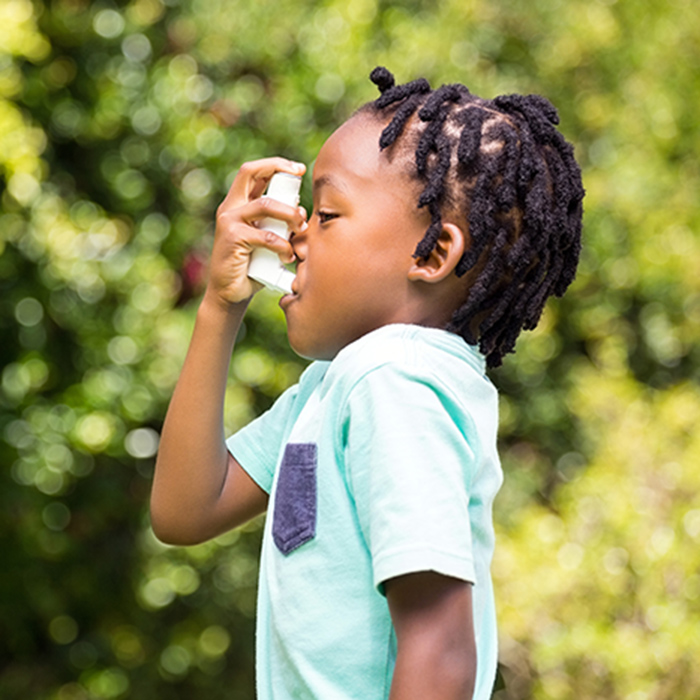Partnerships for Environmental Public Health (PEPH)

Climate Change, Air Pollution, and Children’s Health
October 12, 2022
Interviewee: Kari Nadeau, M.D., Ph.D.
In this episode, Kari Nadeau, M.D., Ph.D., talks about how climate change and air pollution affect children’s health. She also discusses what health care professionals, policy makers, and parents can do to better protect kids from climate change- and air-pollution-related health impacts.
Climate Change, Air Pollution, and Children’s Health
Global reliance on fossil fuels has led to twin health crises: climate change and air pollution. Children, infants, and fetuses are especially vulnerable for an array biological and behavioral reasons. For example, children breathe at a faster rate than adults, increasing their exposure to dangerous air pollutants. Kids also spend more time outdoors, putting them at increased risk to adverse health impacts from extreme heat, air pollution, and allergens. Floods and other natural disasters can also lead to mental health disorders in kids. Although all children face the threat of climate change- and air-pollution-related health impacts, those from socially and economically disadvantaged backgrounds are at greatest risk.
In this episode, we hear from Kari Nadeau, M.D., Ph.D., a pediatrician and environmental health researcher at Stanford University. Nadeau is co-author of a review article appearing in the New England Journal of Medicine, which examines how climate change and air pollution affect children’s health, and what pediatricians can do to better protect their patients.
Interviewee:

Kari Nadeau, M.D., Ph.D., is a physician and an endowed professor at Stanford University specializing in adult and pediatric allergies, asthma, and immunology. Her roles include director of the Sean N. Parker Center for Allergy and Asthma Research; section chief in asthma and allergy in the Pulmonary, Allergy and Critical Care Division; and senior director of clinical research for the Division of Hospital Medicine. As an environmental health researcher, Nadeau studies how air pollution, climate change, and wildfires affect health, particularly in underserved areas, with the aim of informing better prevention and treatment strategies.
Resources:
- Check out these news articles for an overview of the review paper discussed in the episode:
- Learn more about climate change and children’s health from the U.S. Environmental Protection Agency.
- Learn about the National Institutes of Health (NIH) Climate Change and Health Initiative and watch recordings from an NIH seminar series focused on the health implications of climate change.
- Review recommendations from the American Academy of Pediatrics about how pediatricians can play a role in the response to climate change.
- Visit HEAT (NIHHIS) to learn why children are especially vulnerable to heat-related illness and how to protect them. The webpage also features information on other populations facing increased health risks from extreme heat, including older adults, pregnant people, outdoor workers, and emergency responders.
Resources:
- Perera F, Nadeau K. Climate change, fossil-fuel pollution, and children's health. 2022. N Engl J Med 386(24):2303-2314 [Full Text Perera F, Nadeau K. Climate change, fossil-fuel pollution, and children's health. 2022. N Engl J Med 386(24):2303-2314]
- Adar SD, D'Souza J, Sheppard L, Kaufman JD, Hallstrand TS, Davey ME, Sullivan JR, Jahnke J, Koenig J, Larson TV, Liu LJ. 2015. Adopting clean fuels and technologies on school buses. Pollution and health impacts in children. Am J Respir Crit Care Med 191(12):1413-21. [Full Text Adar SD, D'Souza J, Sheppard L, Kaufman JD, Hallstrand TS, Davey ME, Sullivan JR, Jahnke J, Koenig J, Larson TV, Liu LJ. 2015. Adopting clean fuels and technologies on school buses. Pollution and health impacts in children. Am J Respir Crit Care Med 191(12):1413-21.]


